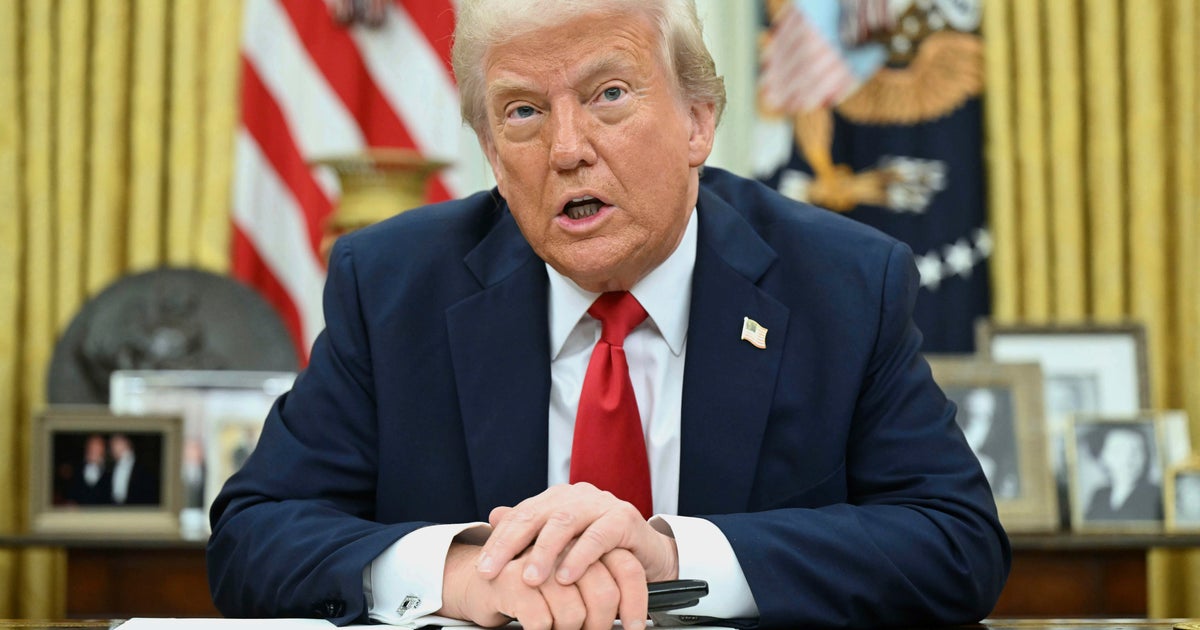
President Trump is considering announcing the creation of what he calls the “External Revenue Service” on Wednesday as the White House launches his new trade agenda and collects tariff revenues from around the globe, according to sources familiar with the planning.
Mr. Trump is also aiming to again alter Washington’s trade relationship with Beijing, and will likely charge tariffs on low-value merchandise shipped from China to individual U.S. consumers.
Details of Mr. Trump’s final decision were unclear as of Wednesday afternoon.
Mr. Trump has considered attaching a fee of $25 on low-value packages from China, one of the sources told CBS News. White House spokespeople didn’t answer requests for comment. It wasn’t clear what levy the president chose.
Currently, a U.S. loophole allows duty-free shipments of Chinese goods worth less than $800.
It has enabled Chinese e-commerce companies such as Shein and Temu to skirt import fees. The practice has undercut other retailers, including American firms, that must pay those fees when buying product in bulk. The so-called de minimis exemption is limited to one shipment per person per day.
The changes, if adopted, would put a pinch on the online shopping habits of American consumers seeking clothing, household products and other goods from China at ultra low prices.
The president is scheduled to hold an event in the Rose Garden at 4 p.m. to herald his tariffs strategy.
Mr. Trump has previously described his idea for the External Revenue Service – meant to be a play on the unpopular domestic tax collection agency – as an arm of government “to collect tariffs, duties, and all revenue that come from foreign sources.”
In February, Commerce Secretary Howard Lutnick said Trump’s goal was “very simple.” It was to “abolish the Internal Revenue Service and let all the outsiders pay,” he said on “Jesse Watters Primetime” on Fox News.
The practicalities of fully replacing the income tax with tariff revenue, a drastic economic overhaul, would be complex. Abolishing the IRS would require an act of Congress.
Collecting tariffs on goods at ports of entry is currently the responsibility of U.S. Customs and Border Protection. Whether the new External Revenue Service would fully assume those duties is unclear, and its establishment could undercut Mr. Trump’s promise of shrinking the federal bureaucracy.
The staggering volume of packages from direct-to-consumer Chinese retailers shipped under the de minimis exemption have raised concerns about fentanyl, and other illicit drugs, and counterfeit goods slipping past U.S. screeners.
The Trump administration targeted cheap products from Chinese retailers a couple months ago, but reversed course amid problems and confusion.
Tariffs on the merchandise shipments that took effect on Feb. 4 were partially rolled back on Feb. 7 after packages piled up at ports of entry. The U.S. Postal Service temporarily paused all small-value deliveries from China and Taiwan as it tried to figure out how to collect the duties.
The White House has invited steel and autoworkers to Wednesday’s tariffs announcement, as well as most of Mr. Trump’s cabinet, officials told CBS News. Several members of Congress were also on the guest list, including House Speaker Mike Johnson, House Majority Leader Steve Scalise, Senate Majority Leader John Thune, Sens. Bill Hagerty and Bernie Moreno.
Fin Gómez and Richard Escobedo contributed reporting.
